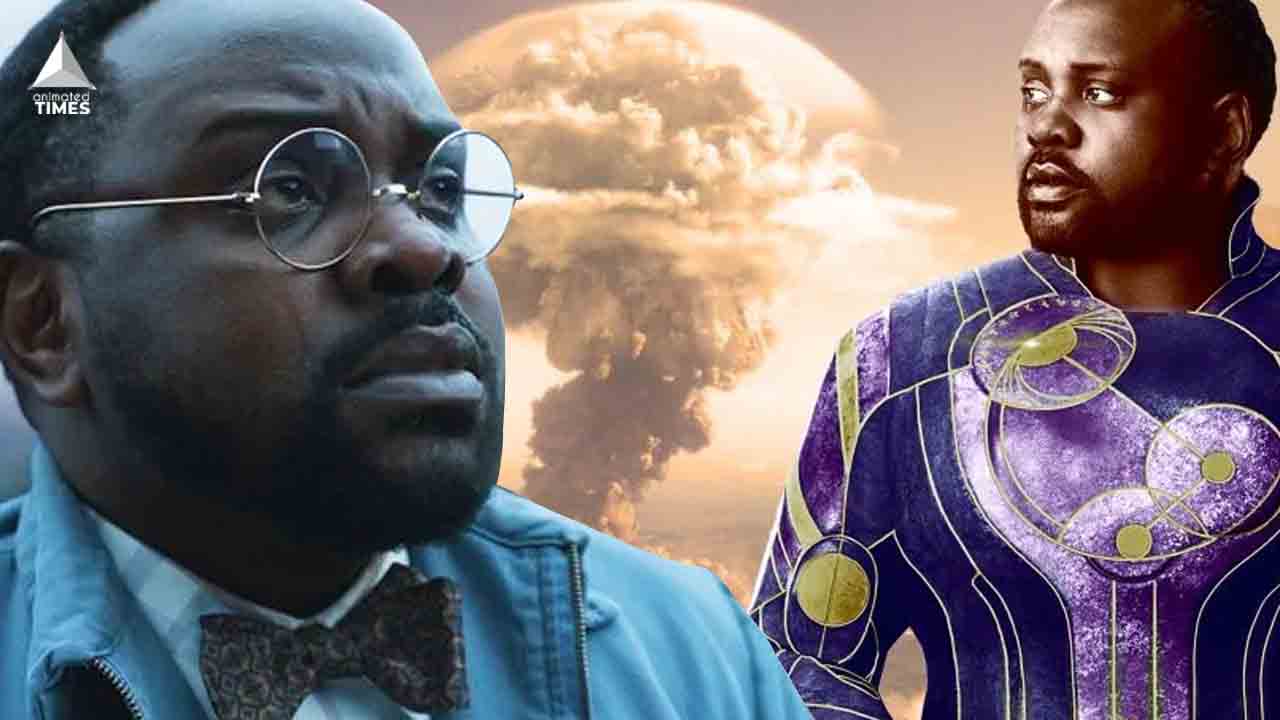The Hiroshima Scene In Eternals Demonstrates The Dangers Of Marvel’s Real-World Retconning
The Hiroshima scene in Eternals shows the danger of real world retconning in the MCU:

The Hiroshima scene from Marvel’s Eternals, starring Phastos and Ajak, demonstrates the dangers of real-world retconning in the MCU. Eternals is the newest instalment in the Marvel Cinematic Universe, which deepens the mythos once further, this time delving far deeper into how superheroes effect mankind as a whole. Eternals, directed by Chloe Zhao, stars Richard Madden, Angelina Jolie, Gemma Chan, Salma Hayek, Kit Harington, Bryan Tyree Henry, Kumail Nanjiani, Lia McHugh, Don Lee, Barry Keoghan, and Lauren Ridloff, all of whom play important roles in shaping mankind across time. The Celestials, ancient gods that originate and construct life in the cosmos, created the Eternals. The Eternals were created to govern and safeguard humanity, particularly against a wicked species of creature known as the Deviants, who feed on people. Each Eternal possesses unique skills that contribute to the formation of a formidable squad with diverse abilities to aid in the completion of their quest. Sersi can shape-shift any material, Sprite can create illusions, Thena can conjure weapons to use in battle, Kingo shoots energy blasts from his hands, Druig can mind-control anyone, Makkari can sprint at high speeds, and Gilgamesh uses massive weaponized fists. Ajak is their commander and possesses healing skills (as well as the capacity to converse with the Celestials). Finally, Phastos is their technical genius, capable of inventing and creating a wide range of technological equipment to aid in their task (and the human race). The biggest dilemma arises here, with the Eternals and their interaction with humans.
Phastos, the Eternal who has perhaps the greatest effect on Humanity:

Phastos, played by Bryan Tyree Henry, is the Eternal with the biggest impact on mankind, since he is seen to conceive and develop new technology, which he “gives” to the planet throughout time. It’s clear early on that he tries to make things for them far before they’re ready for them, which is frequently stymied by Ajak. However, in one scene, both Phastos and Ajak are seen inside the ruins of Hiroshima, the first city to be hit by an atomic bomb during WWII in 1945, killing over 70,000 people. Phastos is shown on his knees, wailing and bemoaning the fact that it was his responsibility for “giving” humanity the technology that allowed this to happen. The problem with revisionist history is that it ultimately robs humanity of being human, both in success and failure, by putting the burden of both on the Eternals, while almost excusing humanity for their wrongdoings because their ability to cause harm ultimately comes from their “gods,” the Eternals.
The Problem Of Humanity Despite Eternals helping them for centuries:

While the Eternals’ intentions are excellent, the dilemma of humans not being responsible for their own acts appears mistaken at best and dangerous at worst. Much of this may be clarified by demonstrating how technology is given to people through time, perhaps more as a “nudge” than an open schematic of what they’re being exposed to. While it’s entirely possible that Phastos is feeling guilty about the creation of the atomic bomb that exploded in Hiroshima, it could have been shown that his guilt was more indirect than direct, with him questioning why humanity would choose this path of destruction rather than accepting responsibility for their actions. By minimizing humanity’s role, both good and evil, they feel less like a race of people that eventually motivate the Eternals to desire to preserve the world and more like subjects who have gone out of hand. In addition to Hiroshima, the Eternals have been observed at other times and locations throughout human history, constantly interacting with and living amongst humans, which is apparently where their love for them originates from, extending beyond their role to protect and guide them. From Babylon through Tenochtitlan, the Eternals observe mankind at its finest and worst, with Ajak continually warning them not to intervene with their deeds, although they do so on several occasions, most notably with Phastos. With Druid’s mind control powers and Phastos’s technological powers influencing and guiding mankind, it eventually rewrites and retcons what it is to be human, lessening the significance of the Eternals willing to sacrifice everything in order to rescue them in the end.
Source: Screenrant





